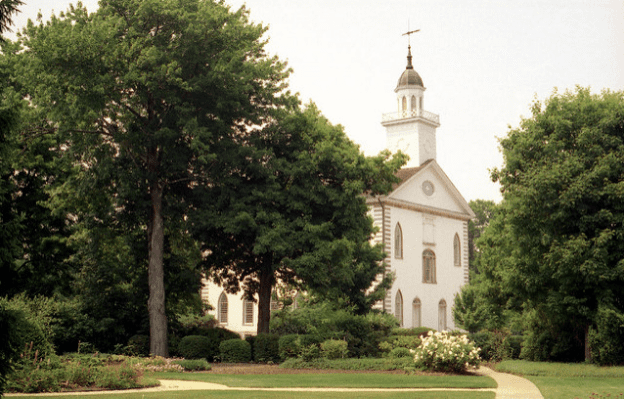 A couple of years ago I went to my Bishop and spilled my guts about my peevishness over the way the church manages the donations and contributions of its members. At the time there was a lot of hoopla in the US about the City Creek Mall redevelopment and the estimated $3.5 billion spent by the church on a high end retail outfit with executive condominiums didn’t seem like a very godly enterprise to me. He just shrugged his shoulders, looked a bit surprised and didn’t have an answer (I didn’t expect him to either, I was just venting).
A couple of years ago I went to my Bishop and spilled my guts about my peevishness over the way the church manages the donations and contributions of its members. At the time there was a lot of hoopla in the US about the City Creek Mall redevelopment and the estimated $3.5 billion spent by the church on a high end retail outfit with executive condominiums didn’t seem like a very godly enterprise to me. He just shrugged his shoulders, looked a bit surprised and didn’t have an answer (I didn’t expect him to either, I was just venting).
Why should I be concerned you might ask – none of NZ’s money is being spent on shopping malls in America? I just think that if tithing is generally touted as a principle we should be on board with as good Mormons, then its use and application also needs to be a principle that we have a right to be concerned about as well. But apparently we aren’t supposed to worry about that. We need to worry about how much we pay and whether or not we are being honest with the Lord, not where that money is going after it leaves our hot little hands. Frankly I feel a bit cheated by this ethos in Mormonism of “Give then don’t ask”, and I’m struggling to find a scriptural reference or doctrinal justification for all of this secrecy so I’ll just keep asking.
But I’m particularly bothered by the extra burden that those outside the US bear with respect to tithing. Last year Dallin Oakes made a senate finance committee appearance to argue against a proposed change to the tax law which would reduce the levels of tax deductions that individual contributors can make. “That’s nice”, I thought. “But why didn’t apostles come to New Zealand and argue eloquently on our behalf so that we could get tax deductions at the same rate as the Americans when all we New Zealanders were getting until quite recently was a measly $520 as a rebate on our donations.” Americans at the same time could (and still do) get tax deductions on their car use for church business at the rate of $0.14c per mile – as long as they keep good records. And… they can deduct all of their charitable donations up to same value as 50% of their gross adjusted income – as long as they complete IRS form 1040 schedule A and include legitimate receipts.
Its only recently that we have been able to claim 33.3% back as a rebate (thanks to a whig government), and I’m having to ask where was the corporate church in all of this? I certainly didn’t see any big wigs coming here and showing up to Select Committee hearings on tax law. Don’t make the mistake that the COB (acronym for Church Office Building and refers affectionately to the corporate church) aren’t involved in matters of the pocket book here in New Zealand. Funnily enough they have been – and in grand style, not that any of the regulars would be aware because they don’t usually publish these things in the Ensign insert.
For instance, in 2003 a case was before the High Court of New Zealand applying for an order that
the Church of Jesus Christ of Latter-day Saints Deseret Benefit Plan for New Zealand be exempt from income tax. This would effectively reduce the tax bill for the trustees of the benefit plan from almost $1,000,000 to zero for the year ended 31 March 2001. The Deseret Benefit Plan is a superannuation plan available only to church employees (ie. the NZCOB) but the argument that the church’s legal counsel gave was that plan should be tax exempt because of the charitable purposes of the church as a whole. However, the court held that church employees aren’t really regular clergy and theoretically much of their work could be done by those without a temple recommend and thus did not qualify for an exemption. Anyway, it went nowhere despite the slew of lawyers they sent along at about $350 per hour per each. And it needn’t concern us regular members because it wasn’t for our benefit.
A couple of years ago Intellectual Reserve, which is a church subsidiary that holds the church’s intellectual property, trademarks and copyrights, took a chap from Auckland to court. He was trying to set up a family tracing service which incorporated the words ‘Family Search’ in his domain name. This was also thrown out but not without spending upwards of $500,000 (NBR’s estimate) on the case.
All I’m saying is that the church does get involved both legally and politically where it feels the need, so I have to ask why the tax plight of Mormons outside of the continental United States has been largely ignored. Clearly they have the resources and will in other contexts to acknowledge the extra financial burden we face in New Zealand as we try to be faithful tithe payers and good citizens.
When I was growing up the highest marginal tax rate was something in excess of 66% (thanks to a Tory government). This meant people I knew who were paying a gross tithe were also needing to get fast offering assistance to feed their families and were using their $520 rebate to get to the temple. In my puny estimation that really didn’t add up, not when US Mormons were romping about the countryside and jet skiing at Bryce Canyon because of the generosity of the charitable deductions (which includes being able to deduct interest on mortgage payments!).
I know that the church continue to say that the flat 10% is fair, but that would suggest there to be an equality across national boundaries in the tax systems and there clearly is not. And anyway, a flat tithing rate is a bit akin to a flat tax rate which is problematic as well. A tithe on $25,000 is quite a different sacrifice for someone than a tithe on $250,000! I know that some will argue that all of this is beside the point and God’s law of the tithe supersedes the petty quibbling of a few mortals, but given there is some interest in the temporal exigencies of tithe paying from the church bigguns in other national contexts it would seem that we here in New Zealand simply don’t count. We just have to keep going and assure ourselves that there is something superior and efficacious in our offerings because when we do it, it hurts.











